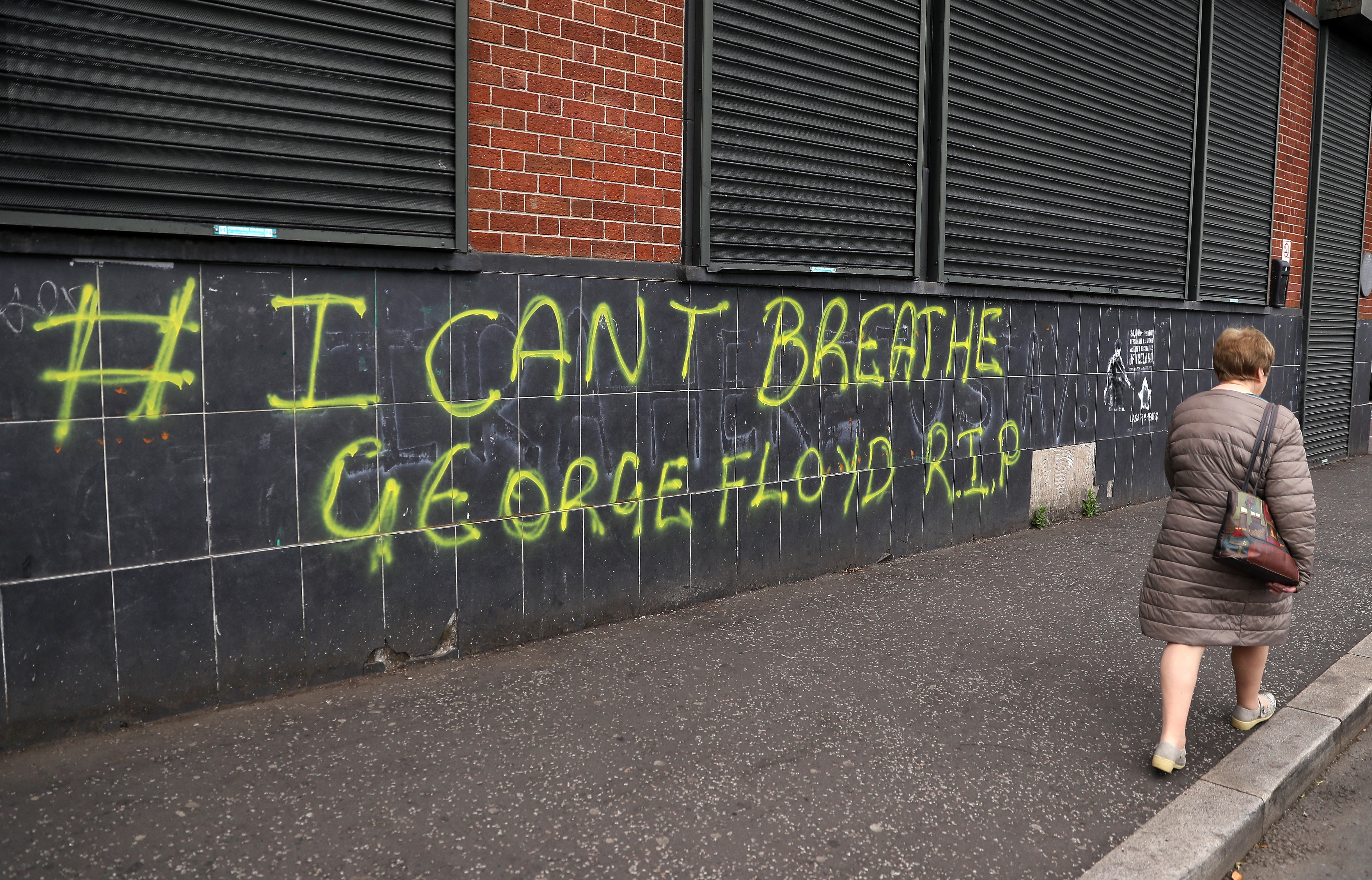Stormont ‘facilitated institutional racism’ through BLM protest crackdown
The PSNI apologised for the force’s handling of the protests in Belfast and Derry in June 2020.

The Stormont Executive “facilitated institutional racism” through the crackdown on Black Lives Matter protests last year, the Northern Ireland Affairs Committee (NIAC) has heard.
PSNI chief constable Simon Byrne apologised for the force’s handling of the protests in Belfast and Derry in June 2020, after an ombudsman’s report found policing of the demonstrations to be unfair and discriminatory.
The PSNI issued up to 70 people with £60 fines at the two demonstrations, which were later refunded.
The Executive was criticised by Amnesty International at the time for “last minute” changes to legislation to facilitate the enforcement of fines on the night before the protests.
Appearing before the NIAC on Wednesday, People Before Profit councillor Shaun Harkin said it was “an act of institutional racism by the five main Executive parties”.
He said: “The reason why I think there’s been this focus on the experience of the minority ethnic communities here in the North is because of what transpired through the Black Lives Matter protests that were organised here and there in Belfast.
“I think that what we seen there was that, yes, it was during the pandemic. But that it was really only those protests that were treated, that were criminalised in the way that they were.
“Many people believe that this is because it was people of colour who were organising protests, that were of course in solidarity with what was happening in the United States.
I think that the Stormont Executive, the five parties, who facilitated what happened - in terms of what the PSNI did in Derry and Belfast - that this was an act of institutional racism by the five main Executive parties
“But it was also the people giving an expression to their own experience here.
“I think that the Stormont Executive, the five parties, who facilitated what happened – in terms of what the PSNI did in Derry and Belfast – that this was an act of institutional racism by the five main Executive parties.”
Cllr Harkin, of Derry and Strabane Council, said the fallout from the incident was still being felt, and had damaged community relations efforts.
“I think that the repercussions of what happened over the Black Lives Matter protests have not been fully dealt with” he said.
“I think that the crackdown, the PSNI’s actions, did a lot of damage to community work or good relations, if you want to call it that.
If you don't fit into those main two traditions, unionist or nationalist identity, you don't count, you're invisible. That applies to the way that the Stormont Executive functions. It applies to the way that votes and decisions are made ...
“The (Police Ombudsman for Northern Ireland) did a report, as people may have already heard from other witnesses, finding government and the police culpable for discrimination on that day.
“I don’t think that this is going to be bridged anytime soon.”
Mr Harkin said the emphasis on viewing everything through the prism of unionist and nationalist identities had created an othering of people from ethnic minority backgrounds.
He said: “One of the other criticisms that I would have and I think that people from our minority and ethnic communities would make, is that everything in this state was organised around communal, green and orange tribal lines.
“And if you don’t fit into those main two traditions, unionist or nationalist identity, you don’t count, you’re invisible.
“That applies to the way that the Stormont Executive functions. It applies to the way that votes and decisions are made, through Stormont, and it applies in terms of people’s visibility.”
Bookmark popover
Removed from bookmarks